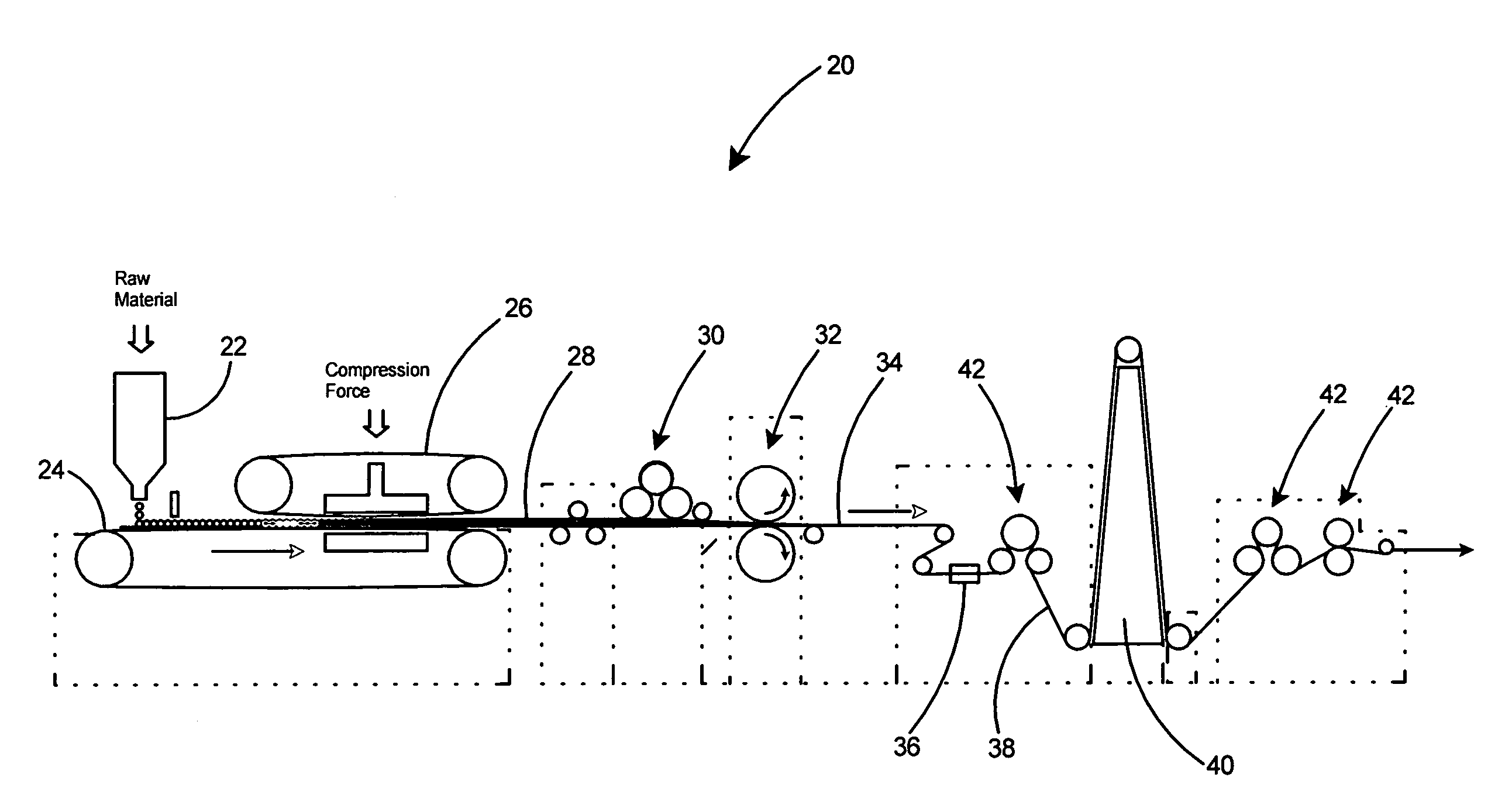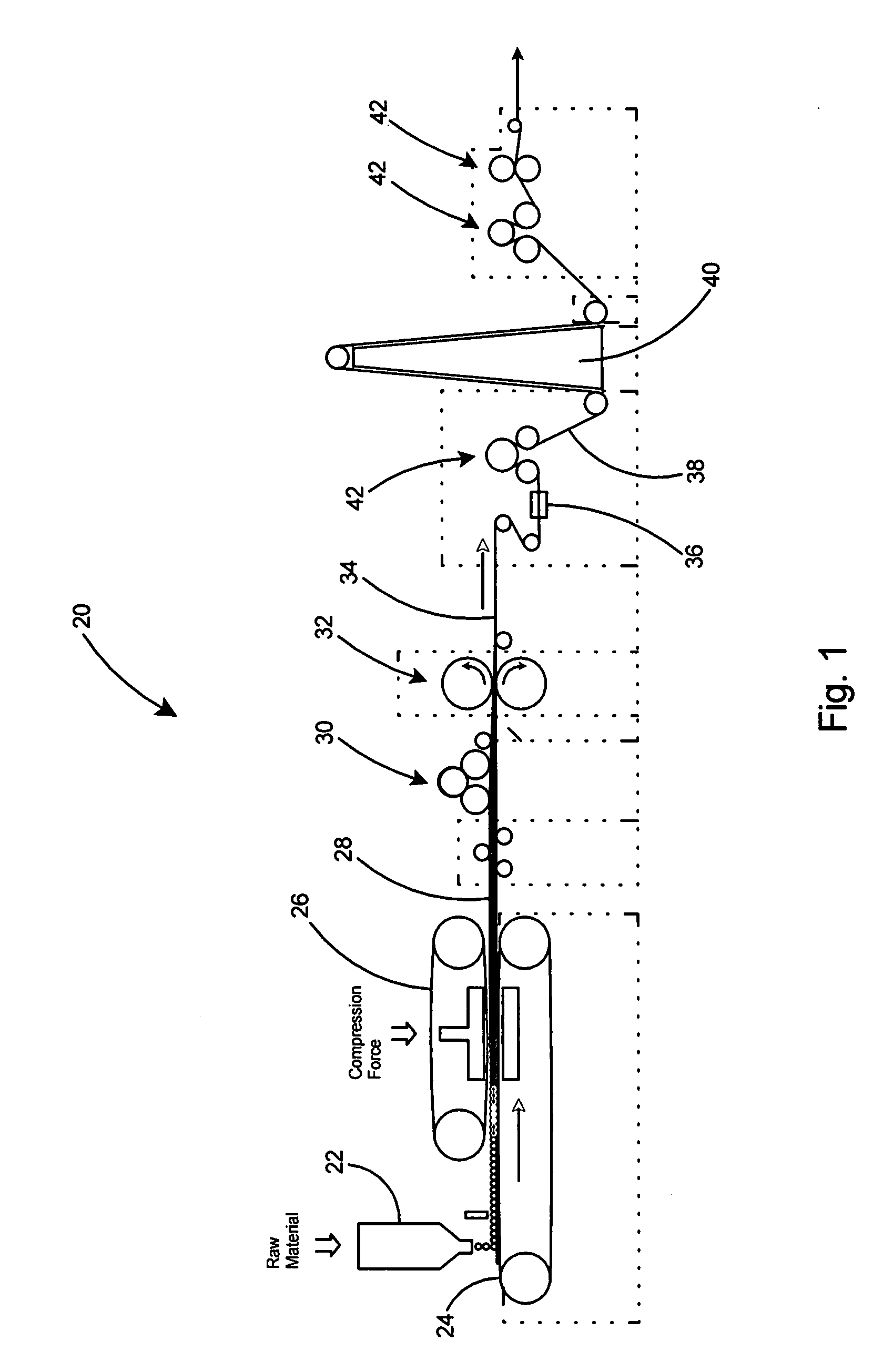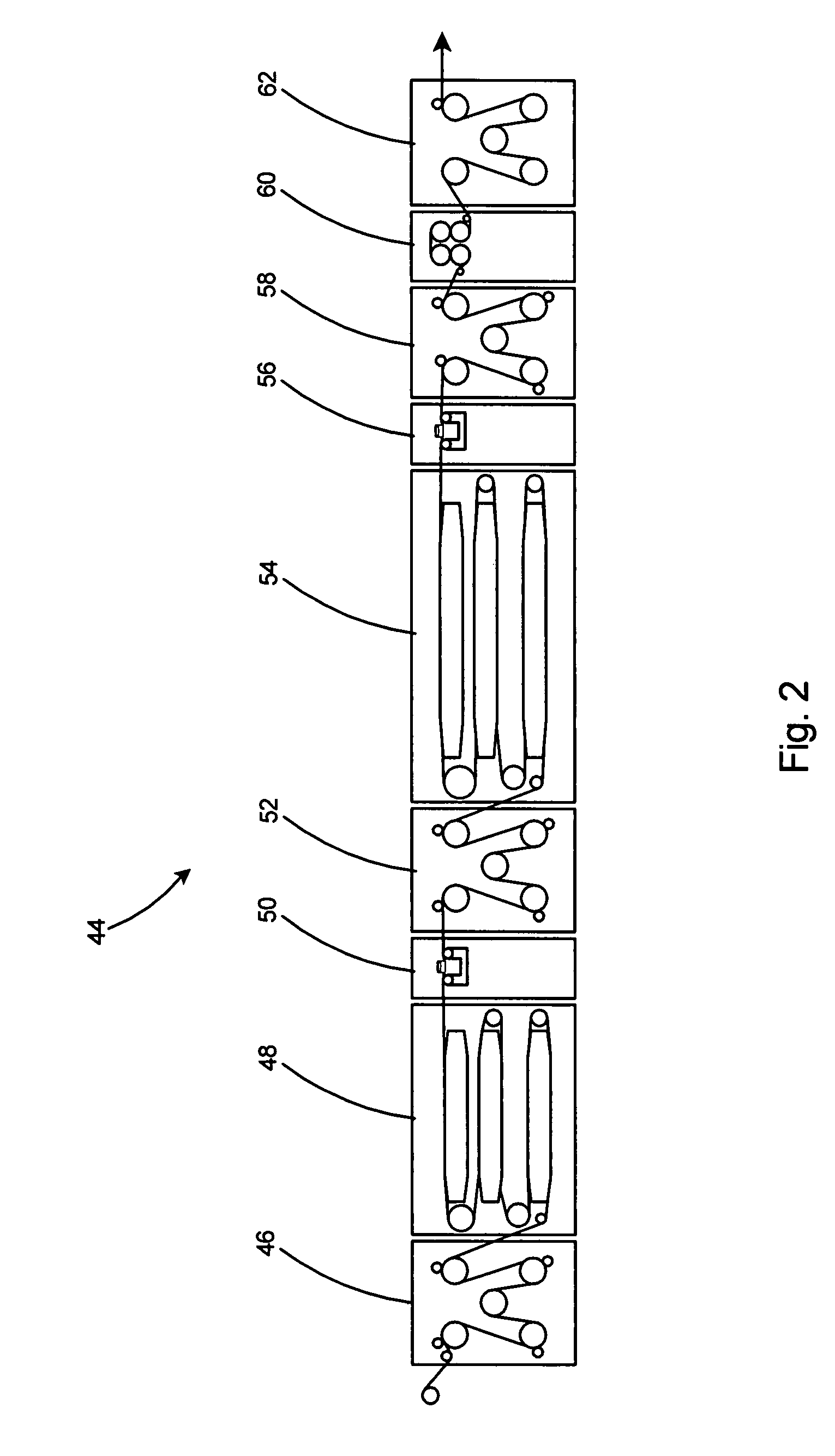Non-fibrous high modulus ultra high molecular weight polyethylene tape for ballistic applications
a polyethylene tape and high molecular weight technology, applied in the field of ultra high molecular weight polyethylene materials, can solve the problems of high cost of separating and recovering all of the various solvents, high cost of uhmwpe fiber production, and high cost of uhmwpe fiber production, and achieves negligible effect on the breaking strength of the tape, small incidence, and high production efficiency
- Summary
- Abstract
- Description
- Claims
- Application Information
AI Technical Summary
Benefits of technology
Problems solved by technology
Method used
Image
Examples
Embodiment Construction
[0024]With reference to FIG. 1 there is shown a first portion 20 of a process for producing high modulus ultra high molecular weight polyethylene tape with low incidence of stress concentrators according to the present invention. The process for forming the ultra high modulus polyethylene tape includes compression molding of particulate UHMWPE at a temperature below the melting point and subsequent calendering and drawing to produce the high modulus tape. The process includes compacting a very specific class of UHMWPE particles under very carefully controlled temperature conditions to yield compacted sheets, calendering the compacted sheet, and then drawing the calendered sheet at a high draw ratio under careful tension control at a temperature near the onset of the unconstrained melt of the UHMWPE material to produce a high modulus UHMWPE tape. Although the UHMWPE product of the present invention is termed a “tape” herein, the product could also be defined as a film or sheet as it ...
PUM
| Property | Measurement | Unit |
|---|---|---|
| thickness | aaaaa | aaaaa |
| thickness | aaaaa | aaaaa |
| temperature | aaaaa | aaaaa |
Abstract
Description
Claims
Application Information
 Login to View More
Login to View More - R&D
- Intellectual Property
- Life Sciences
- Materials
- Tech Scout
- Unparalleled Data Quality
- Higher Quality Content
- 60% Fewer Hallucinations
Browse by: Latest US Patents, China's latest patents, Technical Efficacy Thesaurus, Application Domain, Technology Topic, Popular Technical Reports.
© 2025 PatSnap. All rights reserved.Legal|Privacy policy|Modern Slavery Act Transparency Statement|Sitemap|About US| Contact US: help@patsnap.com



